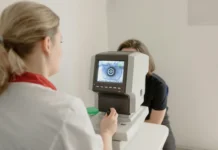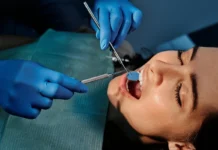Starting recovery means stepping into something unfamiliar, but it doesn’t have to feel overwhelming. A well-structured drug rehab program provides the safety, support, and routine needed to help you regain control of your health.
Here’s a closer look at what you might come across once your journey begins.
Safe and Supervised Withdrawal Phase
If your body’s used to regular substances, stopping suddenly can bring intense reactions. That’s especially true in cases involving sedative-hypnotic and anxiolytic drug use disorder, where withdrawal may affect both the nervous system and emotional balance, and thereby, the journey requires professional supervision.
To determine your current state, you will probably begin with a comprehensive medical examination. After that, you can anticipate 24-hour assistance in managing symptoms. Having qualified nurses close by ensures that, even in the most trying times, someone is constantly keeping an eye on your safety.
Individualized Mental Health Care Plan
Not everyone entering recovery deals with addiction alone. Many also struggle with long-standing anxiety, depression, or trauma. That’s why proper mental health care is part of the foundation, not an afterthought.
Early on, you’ll meet with a licensed psychiatrist to go over your background and needs. This helps the team design your care plan with the right therapies and support in place. Whether you’re someone who’s dealt with emotional numbness or frequent panic, this level of focus helps untangle what’s going on beneath the surface.
Balanced Daily Schedule for Stability
When starting treatment, many people ask this: How do routines help with recovery? Well, for one, a structured day can make things feel more predictable, especially after a long period of stress or instability. When you’re in a program, each part of the day is set with purpose. Mornings might include movement or breathing exercises to ease tension. Afternoons are often used for therapy, rest, and wellness sessions.
There is no rush, and the goal is not perfection. The goal is to help your mind and body return to a steady rhythm that supports long-term healing.
Diverse Therapeutic Activities
No two people respond to the same type of therapy, so it helps when programs offer a mix of approaches. You may find yourself joining a group reflection one day, then taking part in a more physical activity the next.
Some sessions are about expressing emotion, i.e., through art or creative writing. Others are designed to target trauma, such as Tension & Trauma Releasing Exercises. These are helpful if you’ve stored stress in your body for years without realizing. This variety allows you to explore what clicks best for you in a safe setting.
Real-Life Integration and Self-Care Support
Eventually, you’ll need to take what you’ve learned and apply it to everyday life. But how can you prepare for life after rehab? Getting better is not only about stopping harmful habits, as it’s also about learning how to care for yourself again.
There are different ways your rehab plan can help you with this matter, e.g., some weekend activities involve exposure to everyday places, giving you a chance to practice what you are learning. In some cases, the program may include personal care, such as grooming or quiet time for reflection. These simple things help restore confidence, build routine, and remind you that looking after your body and mind is part of recovery too.
Need to know more? Get in touch with The Hills Rehab today for free consultation on how to start your journey to recovery.

































